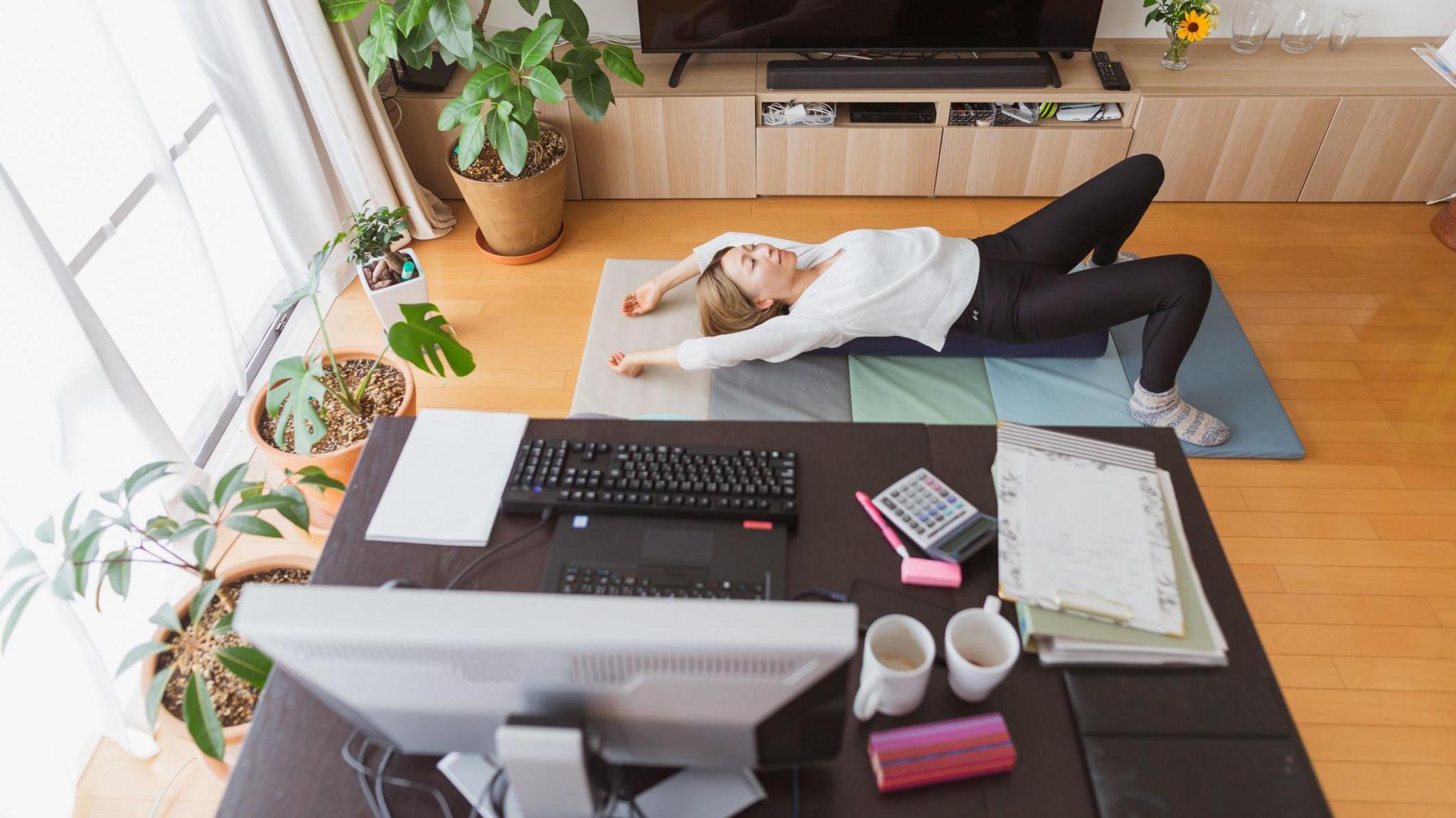Study says home working boosts exercise habits

Nearly half of people in Yorkshire and Humber say remote working has increased how much they exercise
- Published
Nearly half of workers in the Yorkshire and Humber region said working from home had increased how much they exercise.
The workplace well-being study by Better, a charitable social enterprise, looked at the impact of work on physical and mental health.
Respondents said hybrid working was top of the list of priorities when applying for a job.
Rebecca Thompson from Hull, who works for the NHS, said remote working gave her "more time to exercise" as she does not have to commute and can exercise before work and during her lunch break.
She said her diet was healthier as she could cook at home and "not be limited to sandwiches and canteen chips".
'Healthier lifestyles'
42% of people in the Yorkshire and Humber region said working from home gives them more time to workout, the study, external said.
Of those surveyed, 25% of people in the area said remote working somewhat increased their ability to exercise, while 16% said it significantly increased how much they exercised.
Claire Henderson, a personal trainer in Hull, said: "It's no surprise that more flexible working methods are enabling people to pursue healthier lifestyles as being stuck at your desk nine to five for five days a week really does restrict you when it comes to fitness.
"If your commute takes 30 minutes to drive each way, that gives you a free hour to put towards exercising in any form, even something simple at home."
Improves mental health
Sophie Johnson-Read, sports development manager for the University of Hull Sport and Active Wellbeing department, said the hybrid working model offered "flexibility" and has helped "enhance productivity".
"Often when people become busy, they are quick to abandon sports and physical activity, even though these should be top priorities," she said.
People who regularly exercise have a lower risk of major illnesses like strokes, type 2 diabetes and cancer, according to the NHS, external.
It can also decrease the risk of developing depression and improve overall mental health.
The NHS suggests doing at least 150 minutes of "moderate intensity exercise", like brisk walking, cycling or dancing, a week.
Ms Johnson-Read added: "While I may have a bias from working in the sports sector, I genuinely believe that being active offers thousands of advantages."
Listen to highlights from Hull and East Yorkshire on BBC Sounds, watch the latest episode of Look North or tell us about a story you think we should be covering here, external.
Related topics
- Published11 November 2024

- Published17 September 2024

- Published19 August 2022
